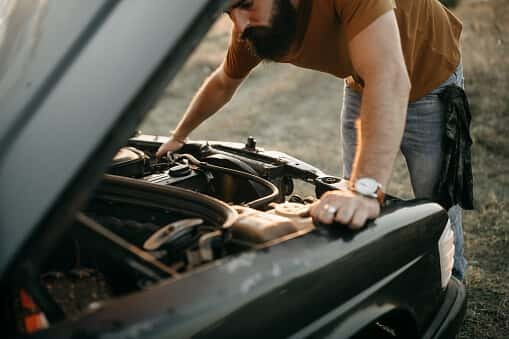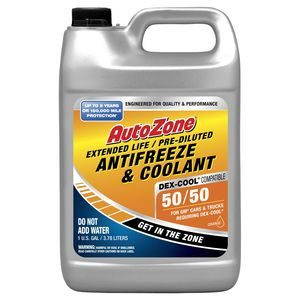How Much Does It Cost To Fix A Car Engine? Expert Guide

Fixing a car engine can be a significant expense, but understanding the costs involved is crucial for making informed decisions. At CARDIAGTECH.NET, we help you navigate the complexities of engine repair costs with clear, actionable insights. Explore options like engine rebuilds, replacements, and warranty coverage to minimize expenses and ensure your vehicle runs smoothly. Discover the true cost of engine repair, labor expenses, and potential savings with high-quality diagnostic tools to keep your car running smoothly.
1. Decoding Engine Failure: Recognizing the Signs
Your engine’s health is critical to your vehicle’s overall performance. Recognizing the early signs of engine trouble can save you from extensive damage and costly repairs. Here are several key indicators to watch out for:
- Check Engine Light: A lit check engine light is often the first sign that something is amiss. Modern vehicles are equipped with sensors that detect a wide range of issues, from minor problems like a loose gas cap to major engine malfunctions. To accurately diagnose the problem, an On-Board Diagnostic II (OBD-II) code reader is essential. CARDIAGTECH.NET offers a range of OBD-II scanners to help you quickly identify the issue and take appropriate action.
 Check engine light on dashboard
Check engine light on dashboard
Alt text: Car dashboard with check engine light illuminated, indicating potential engine problems.
- Performance Decline: A noticeable drop in your vehicle’s performance can signal engine trouble. This can manifest as reduced fuel efficiency, power loss, engine misfires, stalling, difficulty starting, or overheating. These symptoms indicate that the engine is not functioning optimally.
- Unusual Noises: Strange sounds emanating from the engine bay should not be ignored. Knocking, thumping, or grinding noises, particularly during acceleration or deceleration, can indicate serious engine problems. These noises often point to mechanical issues within the engine that require immediate attention.
- Exhaust Changes: An increase in the amount or color of exhaust can be a critical indicator of engine issues. Black smoke suggests excessive fuel is entering the engine. Blue smoke typically indicates burning engine oil, while white smoke often points to burning antifreeze or coolant. Each color signals a different problem that needs prompt investigation.
- Excessive Oil Consumption: One of the most telling signs of engine trouble is needing to frequently refill the oil. Oil serves as both a lubricant and a coolant for the engine, and a lack of oil can lead to rapid wear of engine parts. According to Petar Dzaja, owner of Car Detailing Planet, refilling oil every few days is a strong indication that the car may need significant engine repairs or replacement.
- Fluid Leaks: Oil or coolant spots under your vehicle are clear signs of leaks. While a small leak caught early may not be a major issue, prolonged leaks can lead to fluid depletion and subsequent engine damage. Addressing leaks promptly can prevent further problems and costly repairs.
If you observe any of these symptoms, it’s crucial to consult a mechanic immediately. A professional can perform thorough tests and inspections to accurately diagnose the problem. Depending on the severity, the mechanic may recommend rebuilding or replacing the engine. CARDIAGTECH.NET provides diagnostic tools that can assist mechanics in quickly and accurately assessing engine conditions, ensuring informed decisions about the best course of action.
2. Breaking Down the Cost: Engine Replacement Expenses
Engine replacement costs can vary significantly based on several factors. On average, you can expect to pay between $5,000 and $10,000 for an engine replacement, but this range can fluctuate depending on the type of vehicle you drive and whether you choose a new or used engine.
- Vehicle Type: The make and model of your vehicle play a crucial role in determining the cost of an engine replacement. High-performance or luxury vehicles typically have more expensive engines and require specialized labor, increasing the overall cost.
Alt text: Mechanic inspecting a car engine during a repair service, highlighting the complexity of engine work.
- Engine Type: The choice between a new, remanufactured, or used engine will significantly impact the price. New engines offer reliability and come with warranties, but they are the most expensive option. Remanufactured engines are rebuilt to like-new condition and offer a balance of cost and reliability. Used engines are the cheapest but come with higher risks.
According to Sean Kim, an experienced mechanic, used engines can range from $600 to $6,000 depending on the model, while new engines can range from $3,000 to $14,000 just for the engine itself. Labor costs can add an additional $1,200 to $2,200, depending on the complexity of the vehicle and the amount of programming required.
Cost of Engine Replacement
| Expense | Used Engine | New Engine |
|---|---|---|
| Engine Cost | $600 – $6,000 | $3,000 – $14,000 |
| Labor Cost | $1,200 – $2,200 | $1,200 – $2,200 |
| Total Estimated Cost | $1,800 – $8,200 | $4,200 – $16,200 |
Therefore, the total cost for replacing an engine can range from $1,800 for an economy car with a used engine to over $16,000 for a luxury vehicle with a new, high-performance engine. CARDIAGTECH.NET supports mechanics with high-quality tools that ensure efficient and accurate engine replacements, reducing labor time and potential costs.
Before opting for a full engine swap, it is advisable to have a trusted mechanic perform a thorough diagnostic check. Sometimes, simple issues like a faulty spark plug can cause engine problems that are easily and inexpensively resolved. CARDIAGTECH.NET provides advanced diagnostic equipment to pinpoint these minor issues, potentially saving you from unnecessary and costly replacements.
3. Rebuild or Replace: Evaluating Your Options
When faced with a failing engine, deciding whether to rebuild or replace it can be a complex decision. Each option has its own set of advantages and disadvantages in terms of cost, reliability, and longevity.
3.1. Engine Rebuilding: A Cost-Effective Alternative
Rebuilding an engine involves disassembling it, inspecting the components for damage, and reassembling it with new or remachined parts. This process can often restore the engine to its original condition at a lower cost than a full replacement. The cost of rebuilding an engine typically ranges from $2,500 to $4,000, depending on the vehicle and the extent of the damage.
- Cost Savings: Engine rebuilding is generally less expensive than replacement, making it an attractive option for those on a budget.
- Original Engine: Rebuilding allows you to retain the original engine, which can be important for maintaining the vehicle’s authenticity and performance.
- Customization: During a rebuild, you have the opportunity to upgrade or enhance certain components to improve performance or reliability.
Alt text: Engine components disassembled and laid out for inspection during an engine rebuild, showing the intricate parts involved.
However, there are also potential drawbacks to consider:
- Uncertainty: The success of an engine rebuild depends heavily on the skill and experience of the mechanic. Poor workmanship can lead to recurring problems and reduced engine life.
- Time: Rebuilding an engine can take several days or even weeks, depending on the complexity of the job and the availability of parts.
- Reliability: Even with a thorough rebuild, there is no guarantee that the engine will perform as well as a new or remanufactured engine.
3.2. Engine Replacement: A Fresh Start
Replacing the engine involves removing the old, damaged engine and installing a new or remanufactured unit. This option provides a clean slate and often comes with a warranty, offering peace of mind. However, it is generally more expensive than rebuilding.
- Reliability: New and remanufactured engines are built to meet or exceed original factory specifications, ensuring optimal performance and longevity.
- Warranty: Most replacement engines come with a warranty, protecting you against potential defects or failures.
- Convenience: Replacing an engine is typically faster than rebuilding, minimizing downtime.
The main disadvantage of engine replacement is the higher cost. New engines are the most expensive, while remanufactured engines offer a more affordable alternative with similar benefits. Used engines are the cheapest option but come with increased risks due to unknown history and potential wear.
Comparison of Engine Options
| Option | Cost | Reliability | Warranty | Pros | Cons |
|---|---|---|---|---|---|
| New Engine | Highest | High | Yes | Optimal performance, long lifespan | Most expensive |
| Remanufactured | Moderate | High | Yes | Like-new performance, cost-effective | Can be more expensive than rebuilding |
| Used Engine | Lowest | Low | No | Cheapest option | Unknown history, potential for problems |
| Rebuilt Engine | Moderate | Variable | Limited | Cost-effective, retains original engine | Success depends on mechanic’s skill, reliability can be uncertain |
CARDIAGTECH.NET provides mechanics with the tools and resources necessary to perform both engine rebuilds and replacements efficiently and accurately. Our diagnostic equipment can help assess the extent of engine damage and determine the best course of action.
4. Warranty Coverage: Protecting Your Investment
Understanding your car’s warranty coverage is crucial when facing engine repairs or replacements. Most bumper-to-bumper and powertrain warranties cover engine repairs, which can significantly reduce your out-of-pocket expenses.
- Factory Warranty: If your vehicle is still under its factory warranty, the manufacturer may cover the entire cost of an engine replacement if the failure is due to a factory defect. However, warranties typically do not cover damage caused by collisions, misuse, or lack of maintenance.
Alt text: Close-up of a car warranty document, emphasizing the importance of understanding warranty terms and conditions.
- Extended Warranty: If your factory warranty has expired, an extended warranty can provide continued coverage for engine repairs. The cost of an extended warranty varies depending on the coverage level and provider, but it can be a worthwhile investment, especially for vehicles with known reliability issues.
ConsumerAffairs reviewer Cindae from Pennsylvania shared her positive experience with an extended warranty: “I have said repeatedly that I’m so glad that I had the extended warranty. All of the repairs were covered, a torque converter AND an engine! The warranty also covered an oxygen sensor.”
It’s important to note that extended warranties typically do not cover pre-existing conditions, so it’s best to purchase one before your engine starts showing signs of failure. CARDIAGTECH.NET advises car owners to carefully review their warranty terms and conditions to understand what is covered and what is not.
5. Navigating Financing Options for Engine Repair
Replacing an engine can be a substantial financial burden. Fortunately, several financing options are available to help manage the costs:
- Auto Repair Loans: Many financial institutions offer personal loans specifically for car repairs, including engine replacements. These loans typically come with fixed interest rates and predictable monthly payments, making budgeting easier.
- Credit Cards: Using a credit card can be a convenient way to finance an engine replacement, but it’s essential to pay off the balance quickly to avoid high interest charges.
- In-House Financing: Some repair shops offer their own financing programs or partner with financing companies to help customers pay for major repairs. These programs can be a convenient option, but it’s crucial to compare the terms and interest rates with other financing options.
- Emergency Funds: If you have an emergency savings fund, this is an ideal situation to use it. Utilizing your savings can help you avoid taking on debt and paying interest.
Financing Options for Engine Replacement
| Financing Option | Interest Rates | Pros | Cons |
|---|---|---|---|
| Auto Repair Loans | Fixed | Predictable payments, lower interest rates | Requires good credit |
| Credit Cards | Variable | Convenient, quick access to funds | High interest rates if balance is not paid off quickly |
| In-House Financing | Variable | Convenient, may be easier to qualify for | Potentially higher interest rates, less flexible terms |
| Emergency Funds | N/A | Avoids debt, no interest charges | Requires having sufficient savings |
Before making a decision, compare the rates, terms, and conditions across different financing options to find the best fit for your financial situation. CARDIAGTECH.NET recommends carefully evaluating your budget and long-term financial goals before taking on any debt.
6. Maximizing Engine Life: Maintenance Tips
Proper maintenance is essential for extending the life of your engine, whether it’s a new replacement or a rebuilt unit. Here are some key maintenance tips to follow:
- Regular Oil Changes: Changing your oil according to the manufacturer’s recommendations is crucial for keeping the engine lubricated and preventing wear.
- Routine Maintenance: Following the routine maintenance schedule outlined in your owner’s manual helps ensure that all engine components are functioning correctly.
- Gentle Driving: Avoiding rapid acceleration, hard braking, and other aggressive driving habits can reduce stress on the engine and prolong its lifespan.
Alt text: Mechanic performing an oil change, emphasizing the importance of regular maintenance for engine health.
- Prompt Inspections: Addressing any suspicious noises or behaviors promptly can prevent minor issues from escalating into major problems.
CARDIAGTECH.NET offers a range of diagnostic tools and equipment to help you monitor your engine’s performance and identify potential issues early on. Our products are designed to empower car owners and mechanics to take proactive steps in maintaining engine health.
7. The CARDIAGTECH.NET Advantage: Your Partner in Engine Care
At CARDIAGTECH.NET, we understand the challenges car owners and mechanics face when dealing with engine repairs and replacements. That’s why we offer a comprehensive range of high-quality diagnostic tools and equipment to help you navigate these challenges with confidence.
- Advanced Diagnostic Tools: Our OBD-II scanners, engine analyzers, and other diagnostic tools enable you to quickly and accurately identify engine problems, reducing the risk of misdiagnosis and unnecessary repairs.
- Expert Support: Our team of experienced technicians is available to provide expert support and guidance, helping you choose the right tools and interpret diagnostic data.
- Quality Equipment: We offer a wide selection of engine repair and replacement equipment, from basic hand tools to advanced machinery, all designed to meet the highest standards of quality and durability.
By partnering with CARDIAGTECH.NET, you can ensure that you have the tools and knowledge necessary to keep your engine running smoothly and avoid costly repairs.
8. Addressing Your FAQs About Engine Repair
Here are answers to some common questions about engine repair:
-
What are the drawbacks of an engine replacement?
- Higher upfront costs compared to rebuilding.
- Salvaged engines require thorough assessment to ensure reliability.
- Switching to a different engine model can present compatibility issues.
-
What should you consider before replacing an engine?
- Evaluate the vehicle’s overall condition and long-term plans.
- Assess compatibility and integration requirements for the new engine.
-
What are the pros and cons of rebuilding an engine?
- Pros: Less expensive than replacement, retains original engine.
- Cons: Can take up to two weeks, potential reliability concerns.
-
What should you consider before rebuilding an engine?
- Age and mileage of the vehicle.
- Overall condition of the vehicle.
- Future plans for the vehicle.
-
How does a car engine work?
- Combines air and gas to create explosions that push pistons and rotate a crankshaft.
- This process turns gears, which eventually turn the wheels.
-
How long is an engine supposed to last?
- Most engines are designed to last well over 100,000 miles with proper maintenance.
-
How can I extend the life span of a newly replaced engine?
- Regular oil changes and routine maintenance are essential.
- Avoid rapid acceleration and have suspicious noises inspected promptly.
-
Does car insurance cover engines?
- Typically, no. Car insurance focuses on accidents, theft, and covered perils.
- Mechanical breakdown insurance (MBI) can cover engine repairs or replacements.
-
Can I install an engine from a different manufacturer?
- Yes, but it can be costly and time-consuming. Opting for an engine specifically designed for your model ensures a smoother installation process and minimizes compatibility issues.
-
Is it worth repairing an old engine?
- It depends on the overall condition of the car and the cost of repairs. If the car is in good condition and the repair costs are less than the car’s value, it may be worth it.
9. Ready to Take Control of Your Engine Repair Costs?
Don’t let engine troubles derail your budget or your driving experience. Contact CARDIAGTECH.NET today to learn more about our diagnostic tools and equipment, and take the first step towards smarter, more affordable engine care. Our team is ready to help you find the right solutions to keep your engine running smoothly for years to come.
Address: 276 Reock St, City of Orange, NJ 07050, United States
WhatsApp: +1 (641) 206-8880
Website: CARDIAGTECH.NET
Take advantage of our expertise and high-quality tools to diagnose and address engine issues efficiently. Whether you are a professional mechanic or a car owner looking to save on repair costs, CARDIAGTECH.NET is your trusted partner in engine care. Contact us now for a consultation and let us help you make informed decisions about your engine repairs.







